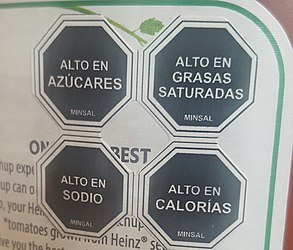Published: February 2025
Bibliographic reference: Gabriela Fretes, Norbert L.W. Wilson, Camila Corvalan, Christina D. Economos, Sean Cash. Front-of-pack labels and young consumers: An experimental investigation of nutrition and sustainability claims in Chile. Food Quality and Preference Volume 127, June 2025, 105432. https://doi.org/10.1016/j.foodqual.2025.105432
Abstract
A better understanding of youth as autonomous consumers in the food market is needed to guide food and nutrition policies to achieve healthier and sustainable diets because they interact with the food environment to obtain, prepare, and consume food and beverages. Compared to other age groups, evidence on children and adolescents (youth) purchasing behavior and front-of-package (FOP) labeling is limited. The objective of the study was to assess youth’s purchasing behavior by conducting an online discrete choice experiment (DCE) in Santiago, Chile. We assessed four different food attributes: price, FOP nutrition warning label, FOP eco-label, and type of product (i.e., yogurt, cookie, apple). Data were analyzed using mixed logit models complemented with latent class logit models to further explore heterogeneity in preferences. A total of 329 youth aged 10–14 years participated in the study. Our results reveal that youths’ purchasing behavior is mostly determined by price, followed by product type and environmental sustainability as measured by the FOP eco-label; responsiveness to price was not moderated by whether the youth received pocket money from a family member regularly. We further identified five classes (groups) of youth consumers where some exhibited preference for health and nutrition attributes, environmental sustainability, or price. Our findings provide a better understanding of youth as diverse and autonomous consumers and suggest at least some youths are responsive to labeling interventions.

